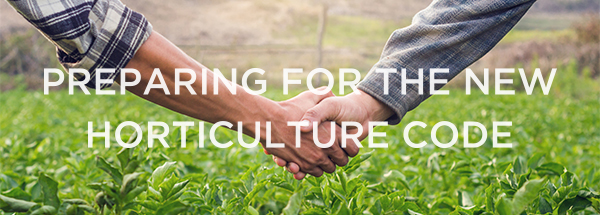Summary of key changes
The key changes in the new Code are:
- Growers who deal with packhouses and wholesalers must have a signed Horticulture Produce Agreement (HPA) in place and keep copies of each agreement for six (6) years.
- Growers should familiarise themselves with the new mandatory code and relevant clauses governing the pricing and handling of produce and dispute resolution mechanisms under the new Code.
- Many wholesalers and agents are preparing new Horticulture Produce Agreements for their customers. Growers have an obligation under the new code to have a signed HPA in place when trading with a wholesaler.
- There are now civil penalties (i.e. fines) in place for non-compliance under the Code.
The main change to the Code is that growers and traders MUST have in place a signed HPA which is compliant with the Code.
AUSVEG has been advised that the majority of wholesalers operating from the central markets will be sending through HPAs to their supplying growers in the next few weeks for signing.
Australian growers are strongly advised to familiarise themselves with their rights and responsibilities under the new code. The ACCC has prepared sample HPAs for growers and pack houses to use online.
In addition to the signing of an HPA, growers are required to keep copies of their HPA, any written notices indicating the grower accepts the agreement, and written notices of termination of the agreement by the grower for six (6) years.
Application to pack houses buying produce from other growers
Some packhouses which consolidate produce from other growers may be defined as Agents or Merchants under the new Code when acting in the capacity of a trader. In these instances, the packhouse would have to comply with the clauses of the Code relating to Agents and Merchants, such as drafting and having an HPA signed with supplying growers, as well as complying with record-keeping requirements for Agents and Merchants under the Code.
This largely depends on the business arrangements between the packhouse and the supplying growers and who pays them – for example, does the grower pay the supplying grower for produce or charge for the packing service, with a separate entity such as a supermarket or wholesaler paying the grower for their produce?
Growers running packhouses consolidating for other growers are advised to contact the ACCC for advice specific to their business.
AUSVEG has also been advised by the ACCC that growers buying produce from other growers on an irregular basis to fill wholesaler and supermarket orders will need to comply with trader requirements under the Code if they are determined to be acting as an Agent or Merchant.
The following table explains the difference between growers and traders under the Code.
| Description | Example |
|---|---|
| Grower | John is a farmer who owns an orange orchard and produces fresh oranges. John is a grower. |
| Agent | John sells his oranges via Fruit Agents Pty Ltd, who takes them to the local fruit market and finds a buyer for John's oranges. Fruit Agents Pty Ltd is an agent who receives a commission or fee from John. |
| Merchant | Sometimes John sells his oranges directly to Orange Buyers Pty Ltd. Orange Buyers Pty Ltd buys directly from John and then sells the oranges on to Big Supermarket Pty Ltd. Orange Buyers Pty Ltd is a merchant who buys produce for the purpose of resale. |
The Code does not apply to purchasers of horticulture produce who sell directly to consumers.
Horticulture produce is unprocessed fruit, vegetables (including mushrooms and other edible fungi), nuts, herbs and other edible plants, but excludes nursery products.
Contacts: Growers can contact the ACCC using the details below to discuss any further questions they have about the Code and how it applies to their specific business.
ACCC Infocentre: 1300 302 502
Small business help line: 1300 302 021

